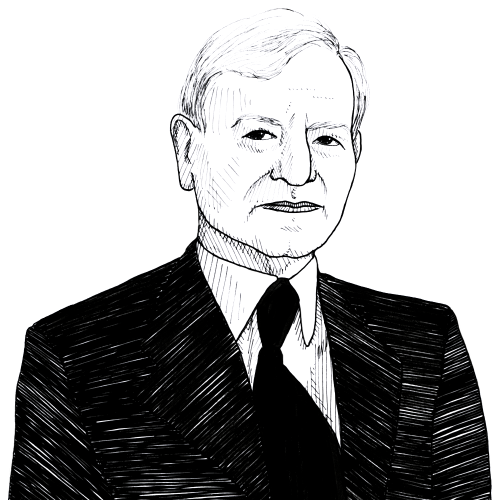Liberty Matters
Agreeing with Frank Fetter on Capital, Markets, and Property
 I am impressed that this brief exchange of ideas has brought so many key concepts out for reexamination. I agree with many of the points raised by Matthew McCaffrey, Joseph Salerno, and Peter Lewin. But ironically, most of all, I find myself agreeing with Frank Fetter.
I am impressed that this brief exchange of ideas has brought so many key concepts out for reexamination. I agree with many of the points raised by Matthew McCaffrey, Joseph Salerno, and Peter Lewin. But ironically, most of all, I find myself agreeing with Frank Fetter.Much of our discussion has concerned capital theory. In response to my colleagues, I wish to stress the point that there is no single Austrian theory of capital. Instead there is an Austrian conversation on the topic, which internally contains a number of radically diverse and evolving views.
For instance, Eduard Braun (2015, 2017) showed that Carl Menger shifted his position radically, from seeing capital as durable "stuff" (Menger 1871) to regarding it as essentially a monetary-accounting phenomenon. Menger (1888, 37) rightly pointed out that this monetary-accounting view of capital prevailed in the business world:
When businessmen and lawyers speak about capital, they do mean neither raw materials, nor auxiliary materials, nor articles of commerce, machines, buildings and other goods like this. Wherever the terminology of the Smithian school has not already penetrated common parlance, only sums of money are denoted by the above word. [Trans. Braun 2015, 90]
This "sums of money" view of capital is radically different from what Matthew McCaffrey describes as the Austrian view: "that capital represents a complex, delicate, and heterogeneous structure of production." According to Fetter and others, capital is subject to monetary homogenization, which in turn facilitates economic calculation in a market economy. Of course, money is complex, but its measure is simple.
Peter Lewin writes that "[i]n common with Irving Fisher (1906), Fetter's capital theory revolves around the distinction between stocks and flows." Yes. Both Fetter and Fisher saw capital as a stock. But there the similarity ends. For Fisher capital was stuff that entered into the physical process of production. For Fetter it was money or the money value of saleable assets.
In his response to the comments, Matthew McCaffery pointed out that Ludwig Mises (1949, 262) once adopted a similar view of capital. Mises wrote:
The concept of capital cannot be separated from the context of monetary calculation and from the social structure of a market economy in which alone monetary calculation is possible.
The problem here is not what Mises says in this excerpt but the tension in his writing between historically specific and universal usages of terms like market. In the same book, Mises (97) saw all action, even by an isolated individual, as "exchange" – as an attempt to swap inferior for superior circumstances. Mises (1949, 257) also devoted an extensive chapter to the market, seeing the market economy as "the social system of the division of labour under private ownership of the means of production." In his account, the historical boundaries of the market depend on what is meant by "private ownership." Mises defined ownership in terms of control of the services that derive from a good rather than in terms of legal rights. Ownership for him meant mere possession. Hence private ownership and exchange could apply to all or most of human history.
Fetter influenced Mises and may have pulled him in a more historically specific institutional direction on the issue of capital. But Mises's fuller commitment to an ahistorical and universal discourse overshadowed these adjustments.
I have argued elsewhere (Hodgson 2019) that markets must be treated as historically specific phenomena. I also point to dangers in the nonmetaphorical use of terms like market for ideas (Coase 1974), political markets (North 1990), and market for laws (Benson and Engen 1988).
As Joseph Salerno shows, Fetter (1915, 59) insisted that markets involve (among other things) "a group of closely communicating traders" making price valuations. In contrast with Mises, this excludes the possibility of single-person market exchange.
Fetter (1915, 264) also saw trade as an exchange of property, where the latter is "an intangible rightIt is legal control, not physical hold of goods" rather than an object: "." Fetter's understandings of capital and markets depend on an historically specific and legally grounded view of property. Unlike Fetter, Mises saw ownership as fundamentally about control of a resource, irrespective of legal rights. (Hodgson 2015a, 2015b)
Once again, I agree with Fetter.
Copyright and Fair Use Statement
“Liberty Matters” is the copyright of Liberty Fund, Inc. This material is put on line to further the educational goals of Liberty Fund, Inc. These essays and responses may be quoted and otherwise used under “fair use” provisions for educational and academic purposes. To reprint these essays in course booklets requires the prior permission of Liberty Fund, Inc. Please contact oll@libertyfund.org if you have any questions.